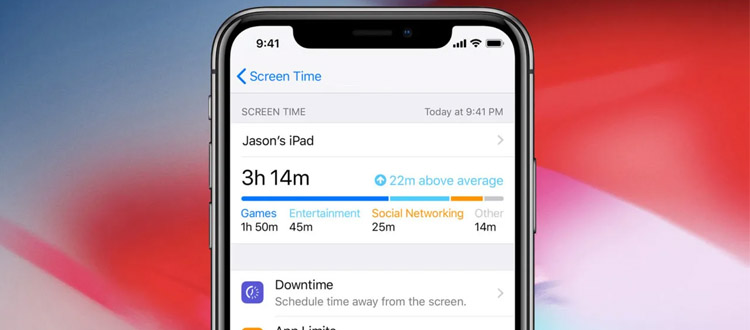Smartphones, gaming systems, and screens are everywhere. They are in our homes, bedrooms, offices, vehicles, pockets, and purses. Have you ever considered how much time you or your family members spend on a screen? While these electronics are helpful or entertaining, the amount of time we spend on them can become a problem.
Think about this: When you are using a device, you are disengaging with something else. Is that something else important to you? Perhaps it's a child, a significant other, exercise, your job, chores, or hobbies.
Sometimes we can feel like something is missing in our life. Perhaps it's an unidentified desire to live life more fully. Reducing screen time frees up more time to connect with family and friends. Feeling connections with others can help to reduce symptoms of stress, depression, and anxiety. We often miss out on the fun and beauty of what's happening around us because of screens. By being present and in the moment — perhaps by setting aside a device — you may find what you need to fill that void.
There are many health benefits to cutting down on screen time.
1. Improve your physical health.You know that physical activity is good for your health, but devices could be cutting into your exercise time. Maintaining healthy habits can be hard when you spend lots of time using screens.
But a physically active lifestyle can help you to:
- Prevent obesity and conditions related to excess weight, like Type 2 diabetes and heart disease.
- Freeing time for exercise and play: You may find that you can use physical activity to fill new gaps in your schedule.
- Getting more sleep: Children who watch more TV tend to have a hard time falling or staying asleep. They can feel tired and snack more often to make up for lost hours of sleep.
- Weight gain: Snacking or eating meals in front of the TV can cause mindless eating, causing you to eat larger portions. When you eliminate distractions, you pay more attention to your body and its signals when it's full.
Exploring and learning about the world is an important part of life. Children are naturally curious, but adults can explore, too. Instead of spending time on devices, encourage yourself and your family to try new activities. Go for a bike ride or walk, visit a park, check out the museum or explore a local nature trail. Activities that don't involve screens can be just as exciting as what is on them.
3. Make social connections.Connecting with others is crucial for us to have good mental health. Children look to their caregivers for this sense of belonging, and adults may find it within their families and friends. Devices can damage these relationships.
Connecting with others is crucial for us to have good mental health. Children look to their caregivers for this sense of belonging, and adults may find it within their families and friends. Devices can damage these relationships.
One study found that a group of children who went without electronic devices for five days were better at recognizing facial emotions and reading nonverbal cues than children who lived life as usual. Less screen time can result in better face-to-face social skills. Having a TV on, even as background noise, will direct your focus to it rather than what is happening around you.

Putting down your phone and going outside or doing an activity you enjoy can be a mood booster. It can make you feel more accomplished and improve your well-being. Depression and anxiety can cause a person to withdraw and isolate themselves from others. Engaging in social activities helps you connect with others and improve symptoms of these conditions. Children who spend more time looking at a screen are more likely to have behavioral problems and divided attention because decreasing screen time can improve focus. Violence in media may cause kids to feel anxious and depressed, and lead them to think that violence is an acceptable way to deal with problems.
5. Build community.Being part of the community around you and feeling connected to others is beneficial to your health.
Consider these ways to get connected:
- Families who eat meals together tend to be healthier. Turning off electronics during meals or family time eliminates distractions. Children from families who eat together also show better academic scores.
- Find events in your community. Make time to volunteer, join a sports team, or connect with a spiritual group.











